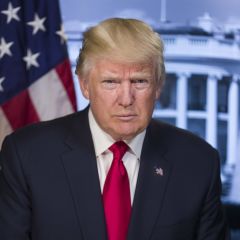 Dylan Riler in the New Left Review:
Dylan Riler in the New Left Review:
Debates around the politics of Trump and other new-right leaders have led to an explosion of historical analogizing, with the experience of the 1930s looming large. According to much of this commentary, Trump—not to mention Orbán, Kaczynski, Modi, Duterte, Erdoğan—is an authoritarian figure justifiably compared to those of the fascist era. The proponents of this view span the political spectrum, from neoconservative right and liberal mainstream to anarchist insurrectionary. The typical rhetorical device they deploy is to advance and protect the identification of Trump with fascism by way of nominal disclaimers of it. Thus for Timothy Snyder, a Cold War liberal, ‘There are differences’—yet: ‘Trump has made his debt to fascism clear from the beginning. From his initial linkage of immigrants to sexual violence to his continued identification of journalists as “enemies” . . . he has given us every clue we need.’ For Snyder’s Yale colleague, Jason Stanley, ‘I’m not arguing that Trump is a fascist leader, in the sense that he’s ruling as a fascist’—but: ‘as far as his rhetorical strategy goes, it’s very fascist.’ For their fellow liberal Richard Evans, at Cambridge: ‘It’s not the same’—however: ‘Trump is a 21st-century would-be dictator who uses the unprecedented power of social media and the Internet to spread conspiracy theories’—‘worryingly reminiscent of the fascists of the 1920s and 1930s.’
From the right, former Republican adviser Max Boot insists: ‘To be clear, I am in no way suggesting there’s any analogy between Trump and Hitler’—however: ‘Trump is a fascist. And that’s not a term I use loosely or often.’ For the liberal neo-con Robert Kagan, ‘This is how fascism comes to America, not with jackboots and salutes’—but ‘with a television huckster, a phony billionaire, a textbook egomaniac “tapping into” popular resentments and insecurities.’ On the left, eco-Marxist John Bellamy Foster agrees that there are ‘historically distinct features’—yet Trump is nevertheless a systematic ‘neofascist’ who, like his interwar forebears, aims at ‘the repression of the workforce’. Queer theorist Judith Butler acknowledges, ‘With Trump, we have a different situation’—but ‘one which I would still call fascist.’ For social democrat Geoffrey Eley, ‘It makes no sense to draw direct equivalences’—nevertheless: ‘we have the kind of crisis that can enable a politics that looks like fascism to coalesce. And this is where Trump has prospered.’ For anarcho-syndicalist Mark Bray, ‘No, I wouldn’t say that Trump is a fascist’—although, ‘he has displayed quite a few fascistic qualities . . . Trump was enabled by fascism (among other things) and in turn enabled fascism.’
More here.
